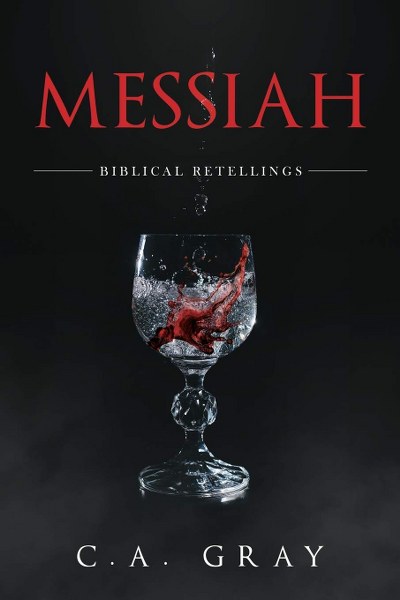Jesus
Curses the Fig Tree (Jesus’ perspective)
The
energy of the crowd was palpable, the dull roar of their excited chatter at a
fever’s
pitch.
Jesus had stopped them between Bethphage and Bethany at the Mount of Olives.
His
throat
was thick with emotion as he instructed Matthew and Bartholomew, “Go into the
village
opposite
you,” here he pointed to Bethphage, “and as soon as you have entered it you
will find a
donkey
and a colt tied, on which no one has sat. Loose them and bring them. And if
anyone says
to
you, ‘Why are you doing this?’ say, ‘The Lord has need of them,’ and
immediately he will
send
them here.”
The
two disciples nodded and hastened to obey. Jesus waited for them now, standing
aloof
from the rest of his disciples, and from the crowd.
How
many of them knew that he was doing this in fulfillment of Zechariah 9:9? he
wondered.
He had told his disciples over and over again that he was going to his death,
but he
knew
they didn’t understand what he meant. They thought it was a euphemism for
something
else.
Particularly now, when he was surrounded by adoring worshippers, all bubbling
over with
excitement
that their king was about to enter Jerusalem.
This
was the culmination of his earthly ministry. The earth had been waiting for
this
moment,
for the King of Kings to enter the Holy City in glory, since the fall of man in
the
Garden.
There was almost a “charge” in the air, of the spirit converging upon the
physical; the
people
could do nothing but worship. Yet these same people would turn on him and cry
out for
his
blood in less than a week.
He
felt so very alone.
Thank
you, Father, he
prayed silently, that
You never
leave me or forsake me.
Normally
people crowded Jesus everywhere he went, but something about His troubled
expression
today must have put them off. Many instead clustered around the
exuberant
Bartimaeus, whom Jesus had healed of blindness just a few hours earlier. He and
his
formerly
blind friend had since cast off their beggar’s cloaks and joined his entourage.
Of the
two,
Bartimaeus was by far the more gregarious, and he entertained the crowds. He
seemed a
born
performer.
Matthew
and Bartholomew returned, leading the colt and the donkey to Jesus by the
reins.
The people saw this, and immediately understood that they were about to head
into the city
now.
They also understood the significance of the donkey: kings rode donkeys to
signify a
peaceful
entry. Horses were for war. They got busy, excitedly throwing their cloaks over
the
animals’
backs for Jesus to sit upon. Some of the people threw their cloaks in the road,
an ancient
Jewish
practice for welcoming a conquering king. Others cried out, “Palm branches
too!” This
was
a reference to a wider cultural practice of the same, and it met with great
enthusiasm. The
crowd
scurried about, retrieving fallen palm branches and snapping or sawing off
those that they
could
reach from nearby palm trees.
Jesus
meanwhile mounted the colt. It meekly accepted his weight, despite the fact
that it
was
unbroken. Matthew and Bartholomew raised their eyebrows and exchanged a look at
this,
impressed,
but said nothing. Beside the colt which Jesus rode, John led the donkey by the
reins
like
a groomsman. As his most empathic disciple, Jesus suspected that John sensed
his mood and
lingered
nearby for emotional support. He felt a rush of affection for his friend.
As
Jesus began the journey, the people spread the branches they had collected on
the
ground
before the colt along with their cloaks, and began to shout, “Hosanna! Blessed
is He who
comes
in the name of the Lord! Blessed is the kingdom of our father David that comes
in the
name
of the Lord! Hosanna in the highest!”
From
oldest to youngest, they all picked up this refrain as Jesus began his last
ride into
Jerusalem.
The people danced and sang, and once he’d passed over cloaks and palms, they
picked
them up again and ran forward, laying them on the road before him. Jesus’ chest
constricted
with conflicting emotions. The people who worshipped him now did so genuinely;
and
yet, their hearts were the stony ground of his parable. They were those who
would
immediately
receive the word with gladness, but when tribulation or persecution arose, they
would
stumble and scatter. It would come all too soon.
The
commotion of Jesus’ entourage drew a crowd of onlookers from Bethany as they
descended
the Mount of Olives, whispering among themselves. Jesus knew what they were
saying.
Many asked who he was that drew such a response. Others, the scribes and
Pharisees
who joined the onlookers, murmured amongst themselves against him. Finally, one
of
them
cried out, “Teacher, do you hear what these are saying? Rebuke your disciples!”
Jesus
looked at the one who had shouted and replied in as steady a tone as he could
manage,
“Yes, I hear. I tell you that if these should keep silent, the stones
themselves would cry
out.”
The
Pharisee who heard him turned to his fellows with furious grumbling. Jesus
turned
away,
and from his position on the slope of the Mount of Olives, he saw Jerusalem
spread
out
before him in the distance. The tears that he had kept at bay until then sprang
unbidden to his
eyes,
and spilled over his cheeks. Most of the people did not notice, but John did,
and placed his
free
hand on Jesus’ shoulder in comfort. Jesus cast him a quick, sad smile, and then
looked back
at
the city.
What inspired you to write
this book?
It started as a challenge
from my mom. We both study the Bible extensively, and I’m also a writer—so she
challenged me to write retellings of Biblical stories to get my imagination
engaged. At first I just shared them with her. But I also have a podcast called
Christian Natural Health that includes scripture meditations—so I thought, why
not record them for those episodes? I started to do that, and before long I
amassed so many of them that I decided to publish them. Then I realized,
there’s too many for just one book! So now it’s a series. This is the first in
the series, and I thought it only appropriate that it would be about Jesus,
since everything in the Old and the New Testament revolves around Him. I also
wanted to group His miracles together to try to get to know Him better. I hope
this collection does the same thing for others.
What can we expect from you
in the future?
The second book in the series is called
“Daughters of Zion,” about the women of the Bible. The third will be called
“Covenants,” and it’s an in-depth look at the various covenants God made with
mankind throughout the Old and New Testaments, which I think are key to
understanding the Bible as a whole. The last one doesn’t have a title yet, but
it’ll be a hodgepodge of the stories that don’t fit elsewhere, of the judges,
kings, prophets, and apostles.
What did you enjoy most
about writing this book?
I learn best when I teach.
In the same way, when writing a retelling, I ask questions that I would never
ask in just a casual reading. The stories are more indelibly marked in my
imagination, which is exactly what I was going for.
Anything specific you want
to tell your readers?
My first introduction to
Jesus from a fictional standpoint was Aslan from the Chronicles of Narnia, and
oh! He is the most beautiful, most compelling fictional character I think I’ve
ever read. I can’t get enough of him. I hoped to write something that brought
Jesus to life in the same way for others!
What are your top favorite
authors?
C.S. Lewis, J.K. Rowling,
Suzanne Collins, Orson Scott Card, Jeff Wheeler, Jane Austen… those are the
ones off the top of my head!
What book do you think
everyone should read?
The Bible, obviously! :)
How long have you been
writing?
If we’re only counting books
I’ve actually published, I started “Intangible” in 2008 and published it in
2013. But I wrote my first full length novel in elementary school sometime,
though it will never see the light of day. :)
Do you see writing as a
career?
It’s a side gig at the
moment, though I’d love to have the option of making it full time someday!
What do you think about the
current publishing market?
There are plusses and
minuses to the self-publishing movement. I’m extremely grateful to have control
over my work, as I think the publishing industry has its own agendas with which
I largely disagree. But the down side is, it’s very hard to get noticed with so
much competition.
Do you read yourself and if
so what is your favorite genre?
I am getting into historical fiction and high
fantasy lately, which are both new for me. YA fantasy has always been my
favorite before, but I’m finding more and more that I don’t have the patience
for the familiar tropes I’ve read a thousand times, or the same characters in
different packaging.
Do you write one book at a
time or do you have several going at a time?
I only have 1.5 hrs four
days per week to write, so I write one at a time. I'd never finish anything if
I did more than that… though that created a conflict while writing this series,
as I was already 100 pages in to a high fantasy novel but my heart was with
this series. I finally decided to listen to it, though I fully intend to go
back to the other one eventually.
What makes a good story?
Compelling characters, surprising plot twists,
and rich world building.









Comments
Post a Comment